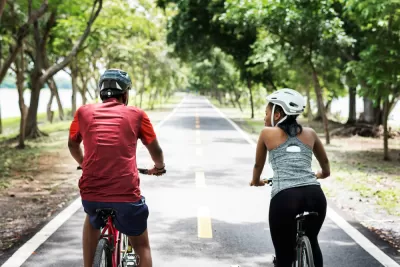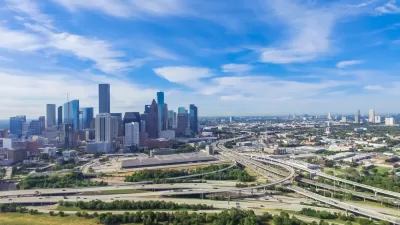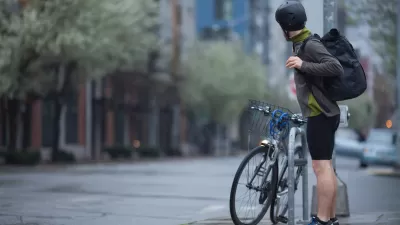A far-reaching new study highlights the disproportionate effect of biking and walking laws on the mobility of Black Americans.

An extensive new analysis of laws that impact vulnerable road users identifies “policies that evidence shows are being enforced in a racially discriminatory manner, or that have strong potential to be enforced in a racially discriminatory manner.” As Kea Wilson explains in Streetsblog, the research team, led by Charles T. Brown, used interviews in addition to the legal data to understand how the mobility of Black Americans is limited by discriminatory laws.
“Throughout the report, Brown and his colleagues cite a massive body of research that shows Black road users throughout the U.S. are significantly more likely than White road users to be policed for mobility-related infractions, to face violence and death at the hands of law enforcement when they’re stopped, and to live in communities that rely on fines and fees to support their municipal budgets, even though Black residents disproportionately struggle to pay them.” Furthermore, stops made under the pretense of safety—jaywalking, helmet laws, sidewalk bike riding laws—actually endanger pedestrians and people on bikes by forcing them onto unsafe infrastructure.
The report makes a few recommendations, such as supporting “dedicated infrastructure for vulnerable road users, not just as a tool to end traffic violence but a tool to prevent criminalized behavior like sidewalk riding and jaywalking and reduce the need for human enforcement” and encouraging bike manufacturers to include more safety equipment as built-in features. “The researchers’ final recommendation, though, may be the most important of all: that transportation leaders to analyze and address all the structural reasons why Black people experience arrested mobility anywhere they move.”
FULL STORY: How Bike/Walk Laws ‘Arrest’ the Mobility of Black Americans

Alabama: Trump Terminates Settlements for Black Communities Harmed By Raw Sewage
Trump deemed the landmark civil rights agreement “illegal DEI and environmental justice policy.”

Planetizen Federal Action Tracker
A weekly monitor of how Trump’s orders and actions are impacting planners and planning in America.

Why Should We Subsidize Public Transportation?
Many public transit agencies face financial stress due to rising costs, declining fare revenue, and declining subsidies. Transit advocates must provide a strong business case for increasing public transit funding.

Understanding Road Diets
An explainer from Momentum highlights the advantages of reducing vehicle lanes in favor of more bike, transit, and pedestrian infrastructure.

New California Law Regulates Warehouse Pollution
A new law tightens building and emissions regulations for large distribution warehouses to mitigate air pollution and traffic in surrounding communities.

Phoenix Announces Opening Date for Light Rail Extension
The South Central extension will connect South Phoenix to downtown and other major hubs starting on June 7.
Urban Design for Planners 1: Software Tools
This six-course series explores essential urban design concepts using open source software and equips planners with the tools they need to participate fully in the urban design process.
Planning for Universal Design
Learn the tools for implementing Universal Design in planning regulations.
Caltrans
Smith Gee Studio
Institute for Housing and Urban Development Studies (IHS)
City of Grandview
Harvard GSD Executive Education
Toledo-Lucas County Plan Commissions
Salt Lake City
NYU Wagner Graduate School of Public Service





























